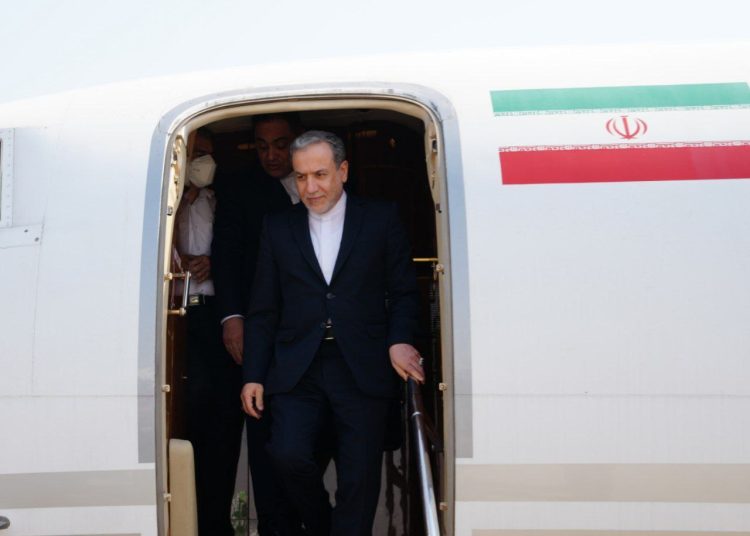The new regional tour by Iranian Foreign Minister is an endeavor to navigate and mitigate the complex web of regional conflicts. This “diplomatic battle” aims to counter the moves by Israel and the U.S., consequently seeking to deescalate amid rising tensions in the Middle East.
In the wake of rising tensions in Palestine and Lebanon as well as escalation between Iran and Israel, Iranian Foreign Minister, Abbas Araghchi, has embarked on a significant regional tour to Jordan, Egypt, and Turkey. This diplomatic initiative is designed to continue consultations with regional countries to halt the ongoing war and atrocities against the Palestinian people in Gaza and to contribute to stability in Lebanon. The visit also symbolizes Iran’s commitment to engage with key regional players amidst a complex geopolitical landscape.
This tour marks the seventh round of regional diplomatic travels undertaken by Iran’s top diplomat. Previously, the Iranian Foreign Minister visited Lebanon, Syria, Saudi Arabia, Qatar, and Oman, engaging in discussions with their senior and high-ranking officials. These engagements underscore Iran’s diplomatic movements in response to regional and international developments, emphasizing the need for establishing a ceasefire in the region.
Iran’s diplomatic efforts are unfolding against the backdrop of continued Israeli military attacks on the people of Gaza and incursions into Lebanon. Concurrently, Israel and its Western allies, particularly the United States, have intensified their political and diplomatic maneuvers both within and beyond the region. These actions aim to reshape global perceptions of the regional dynamics, attempting to reframe the narrative by altering the roles of aggressor and defender.
The Iranian Foreign Minister’s regional visits can be perceived as a form of “shuttle diplomacy,” a strategic endeavor to navigate and mitigate the complex web of regional conflicts. This “diplomatic battle” seeks to counter the moves of Israel and its supporters by engaging directly with neighboring countries to address the root causes of the crises—occupation, aggression, and the contentious policies of the Israeli regime.
Iran endeavors to prevent the diversion of global attention from these fundamental issues, advocating for a focus on the rights and freedoms of the Palestinian people and the broader implications for regional stability.
A noteworthy aspect of this diplomatic tour is the meeting with Jordanian officials including with its King and the Foreign Minister after a hiatus of ten years. This engagement signals a mutual desire to strengthen bilateral relations and collaborate more closely in resolving regional crises. Jordan’s strategic position and its role in Middle Eastern politics make this renewed dialogue particularly significant. The resumption of high-level talks could pave the way for joint initiatives aimed at easing tensions and fostering peace in the region.
Similarly, the visit to Egypt holds substantial importance, marking the first such trip in twelve years and following two visits by the Egyptian Foreign Minister to Tehran. Egypt’s influential role in Middle Eastern affairs, especially concerning the Palestinian issue, positions it as a critical partner in any efforts to mediate conflicts and promote stability. The discussions between the Iranian and Egyptian Foreign Ministers could lead to strengthened regional cooperation and the exploration of common solutions to persistent challenges.
Recent developments on the ground, including resistance operations in Gaza and actions by Hezbollah in Lebanon against military targets in Israel, indicate an attempt to shift the balance of power within the conflict. These events reflect a broader struggle for influence and control, with various actors seeking to assert their strategic agendas. Iran’s continuous diplomatic efforts aim to support the Palestinian and Lebanese peoples while working to prevent further escalation of the crises. By engaging directly with influential regional players, Iran hopes to contribute to a peaceful resolution and uphold the principles of sovereignty and self-determination.
The ongoing situation also highlights attempts by Israel to transform the nature of the crisis from a confrontation over Palestinian rights into a broader conflict involving Iran. There are concerns about a potential Israeli-American and Western narrative that frames the issue as a direct opposition to Iran, thereby obscuring the fundamental problems of occupation and aggression. Iran remains vigilant against such strategies, emphasizing the need to address the core issues rather than allowing them to be overshadowed by geopolitical rivalries.
Moreover, Israel, through its intensified military actions and the support of the United States, appears to be pursuing a targeted agenda. This includes seeking an imposed ceasefire that could solidify certain tactical gains for the Israeli regime, while projecting these as strategic successes in its confrontations in Gaza and Lebanon, and particularly in its stance against Iran. Iran perceives these developments as attempts to shift the strategic realities on the ground and in diplomatic arenas, necessitating a robust and proactive response.
The Iranian Foreign Minister’s regional tour represents a calculated effort to counter these moves. By engaging in direct dialogue with neighboring countries, Iran aims to foster a collective approach to the crises, emphasizing mutual interests and shared concerns.
In conclusion, by actively engaging with key countries like Jordan and Egypt after significant intervals, Iran signals its readiness to play a constructive role in addressing pressing challenges. These diplomatic efforts aim to halt the cycles of violence in Gaza and Lebanon, support the rights of oppressed populations, and prevent the manipulation of regional crises for broader geopolitical ends.
The success of these endeavors depends on the willingness of regional actors to collaborate and prioritize long-term stability over short-term gains. As the situation continues to evolve, the role of diplomacy becomes ever more critical. Iran’s approach underscores the potential of strategic engagement and dialogue in overcoming divisions and fostering a more secure and peaceful Middle East.






